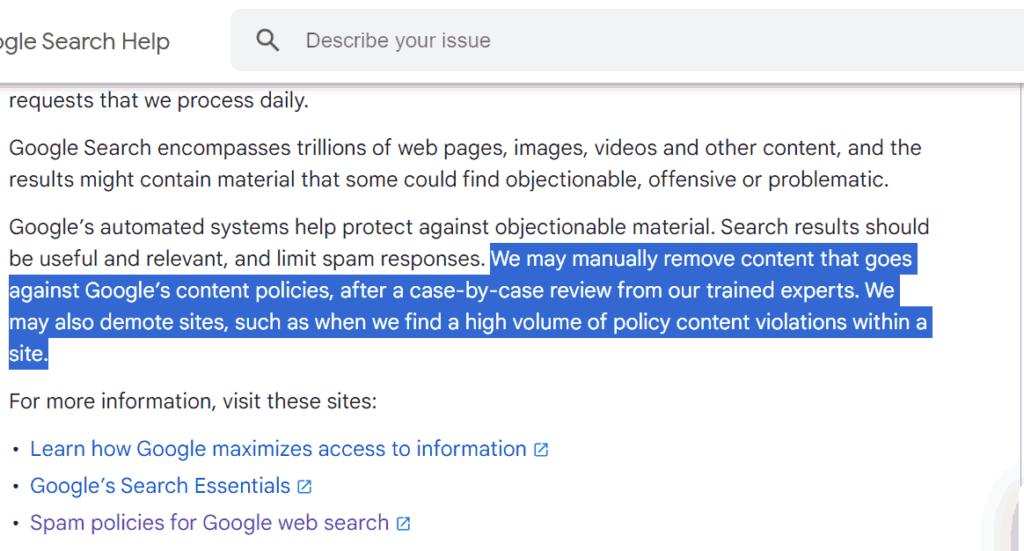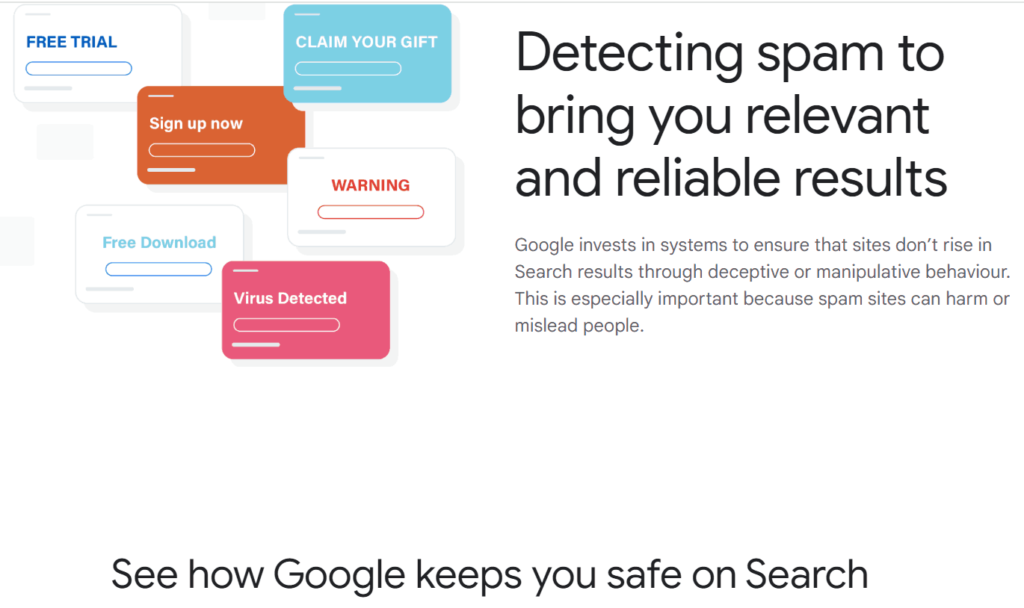Every update that Google introduces related to changes in SERP feels like a bombshell to website owners and SEO professionals. This time, Google rolled out another spam update on June 20, 2024, which lasted for one week until June 27, 2024. The main aim of this update was to eliminate various forms of spam practices that persisted even after the March core update.
Search Engine Journal’s Roger Montti revealed that certain AI spam sites ranked for over 217,000 queries, with more than 14,900 ranking in the top 10 search results. This is a worrying factor for any user seeking information. Let’s understand what spammy sites and spammy content are and why Google is rolling out updates to keep adding value to user searches, thus making changes to SERP as well.
What are Spammy Sites?
Spammy sites are any form of web page content created to improve search rankings without regard for user value. These pages often contain many links to other websites, designed to bring users to a certain page via links. The pages may pretend to provide assistance or facts about a subject, but the help is often meaningless, and the information is useless. Web spam pages use keyword percentage algorithms to repeat text in the copy or meta tags to achieve a higher ranking in search engine results. These sites get links from different niches unrelated to them, just for the sake of ranking higher.
What is Spammy Content?
Spammy content is content that continually tries to sell something with no purpose or value to users. It is made to rank higher using deceptive practices like using keywords in the title, URL, heading, description, introduction, and conclusion. This content is written solely to rank higher, not to benefit users.

For example, you did keyword research and found 15 related keywords from the main LSI keywords before writing content. Instead of creating 1-2 pages, you created 15 separate pages for all 15 keywords just for the purpose of ranking higher through scaled content abuse.
Why Did Google Roll Out the June Spam Update?
Every update that Google brings takes a little time to start showing results. Earlier, Google rolled out the March core update to improve user search engine experience. However, as mentioned earlier, Roger Montti’s report revealed that certain AI spam sites ranked for over 217,000 queries, with more than 14,900 ranking in the top 10 search results. The main aim is to further eliminate sites that practice these deceptive techniques.

Impact of Google’s June Spam Update
This latest update follows Google’s previous spam update in March 2024. The June update is expected to further refine Google’s spam detection capabilities. However, as with previous updates, it may cause fluctuations in website search rankings.
How You Shouldn’t Violate Google Spam Policies
Google’s main priority is to keep users’ searches safe on the internet. Make content that actually benefits users, not just to rank better in search engines. If users find your content good and valuable, they will spend time on your websites, posts, and articles, thus increasing user engagement time. Once Google notices that users are happy and spending time reading your content, your rankings will gradually improve.
Similarly, don’t take backlinks from unrelated niches. For example, Google dislikes when your web page is about sports but has backlinks from a movie website.
Next, when you write content, you usually do keyword research to find related keywords. Don’t make separate pages for every keyword. Instead, try to implement those keywords in a single page and provide information that genuinely helps users who find your article interesting.
Keep your brand value higher by reducing these practices with us. Need more help in understanding these practices?
Connect with us! We love sharing information. Partner with Content Ladder (Content that matters)

